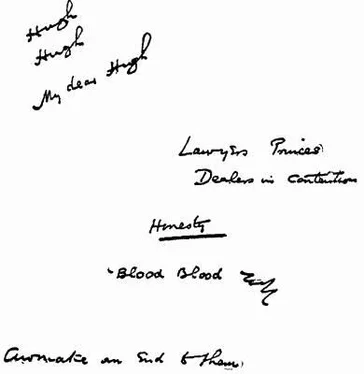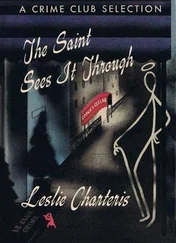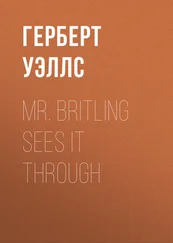Herbert Wells - Mr. Britling Sees It Through
Здесь есть возможность читать онлайн «Herbert Wells - Mr. Britling Sees It Through» весь текст электронной книги совершенно бесплатно (целиком полную версию без сокращений). В некоторых случаях можно слушать аудио, скачать через торрент в формате fb2 и присутствует краткое содержание. Жанр: Классическая проза, на английском языке. Описание произведения, (предисловие) а так же отзывы посетителей доступны на портале библиотеки ЛибКат.
- Название:Mr. Britling Sees It Through
- Автор:
- Жанр:
- Год:неизвестен
- ISBN:нет данных
- Рейтинг книги:4 / 5. Голосов: 1
-
Избранное:Добавить в избранное
- Отзывы:
-
Ваша оценка:
- 80
- 1
- 2
- 3
- 4
- 5
Mr. Britling Sees It Through: краткое содержание, описание и аннотация
Предлагаем к чтению аннотацию, описание, краткое содержание или предисловие (зависит от того, что написал сам автор книги «Mr. Britling Sees It Through»). Если вы не нашли необходимую информацию о книге — напишите в комментариях, мы постараемся отыскать её.
Mr. Britling Sees It Through — читать онлайн бесплатно полную книгу (весь текст) целиком
Ниже представлен текст книги, разбитый по страницам. Система сохранения места последней прочитанной страницы, позволяет с удобством читать онлайн бесплатно книгу «Mr. Britling Sees It Through», без необходимости каждый раз заново искать на чём Вы остановились. Поставьте закладку, и сможете в любой момент перейти на страницу, на которой закончили чтение.
Интервал:
Закладка:
He played hockey with an extraordinary zest and nimbleness. Always he played in the tail coat, and the knitted muffler was never relinquished; he treated the game entirely as an occasion for quick tricks and personal agility; he bounded about the field like a kitten, he pirouetted suddenly, he leapt into the air and came down in new directions; his fresh-coloured face was alive with delight, the coat tails and the muffler trailed and swished about breathlessly behind his agility. He never passed to other players; he never realised his appointed place in the game; he sought simply to make himself a leaping screen about the ball as he drove it towards the goal. But André he would not permit to play at all, and Madame played like a lady, like a Madonna, like a saint carrying the instrument of her martyrdom. The game and its enthusiasms flowed round her and receded from her; she remained quite valiant but tolerant, restrained; doing her best to do the extraordinary things required of her, but essentially a being of passive dignities, living chiefly for them; Letty careering by her, keen and swift, was like a creature of a different species....
Mr. Britling cerebrated abundantly about these contrasts.
"What has been blown in among us by these German shells," he said, "is essentially a Catholic family. Blown clean out of its setting.... We who are really—Neo-Europeans....
"At first you imagine there is nothing separating us but language. Presently you find that language is the least of our separations. These people are people living upon fundamentally different ideas from ours, ideas far more definite and complete than ours. You imagine that home in Antwerp as something much more rounded off, much more closed in, a cell, a real social unit, a different thing altogether from this place of meeting. Our boys play cheerfully with all comers; little André hasn't learnt to play with any outside children at all. We must seem incredibly open to these Van der Pants. A house without sides.... Last Sunday I could not find out the names of the two girls who came on bicycles and played so well. They came with Kitty Westropp. And Van der Pant wanted to know how they were related to us. Or how was it they came?...
"Look at Madame. She's built on a fundamentally different plan from any of our womenkind here. Tennis, the bicycle, co-education, the two-step, the higher education of women.... Say these things over to yourself, and think of her. It's like talking of a nun in riding breeches. She's a specialised woman, specialising in womanhood, her sphere is the home. Soft, trailing, draping skirts, slow movements, a veiled face; for no Oriental veil could be more effectual than her beautiful Catholic quiet. Catholicism invented the invisible purdah. She is far more akin to that sweet little Indian lady with the wonderful robes whom Carmine brought over with her tall husband last summer, than she is to Letty or Cissie. She, too, undertook to play hockey. And played it very much as Madame Van der Pant played it....
"The more I see of our hockey," said Mr. Britling, "the more wonderful it seems to me as a touchstone of character and culture and breeding...."
Mr. Manning, to whom he was delivering this discourse, switched him on to a new track by asking what he meant by "Neo-European."
"It's a bad phrase," said Mr. Britling. "I'll withdraw it. Let me try and state exactly what I have in mind. I mean something that is coming up in America and here and the Scandinavian countries and Russia, a new culture, an escape from the Levantine religion and the Catholic culture that came to us from the Mediterranean. Let me drop Neo-European; let me say Northern. We are Northerners. The key, the heart, the nucleus and essence of every culture is its conception of the relations of men and women; and this new culture tends to diminish the specialisation of women as women, to let them out from the cell of the home into common citizenship with men. It's a new culture, still in process of development, which will make men more social and co-operative and women bolder, swifter, more responsible and less cloistered. It minimises instead of exaggerating the importance of sex....
"And," said Mr. Britling, in very much the tones in which a preacher might say "Sixthly," "it is just all this Northern tendency that this world struggle is going to release. This war is pounding through Europe, smashing up homes, dispersing and mixing homes, setting Madame Van der Pant playing hockey, and André climbing trees with my young ruffians; it is killing young men by the million, altering the proportions of the sexes for a generation, bringing women into business and office and industry, destroying the accumulated wealth that kept so many of them in refined idleness, flooding the world with strange doubts and novel ideas...."
§ 9
But the conflict of manners and customs that followed the invasion of the English villages by French and Belgian refugees did not always present the immigrants as Catholics and the hosts as "Neo-European." In the case of Mr. Dimple it was the other way round. He met Mr. Britling in Claverings park and told him his troubles....
"Of course," he said, "we have to do our Utmost for Brave Little Belgium. I would be the last to complain of any little inconvenience one may experience in doing that. Still, I must confess I think you and dear Mrs. Britling are fortunate, exceptionally fortunate, in the Belgians you have got. My guests—it's unfortunate— the man is some sort of journalist and quite—oh! much too much—an Atheist. An open positive one. Not simply Honest Doubt. I'm quite prepared for honest doubt nowadays. You and I have no quarrel over that. But he is aggressive. He makes remarks about miracles, quite derogatory remarks, and not always in French. Sometimes he almost speaks English. And in front of my sister. And he goes out, he says, looking for a Café. He never finds a Café, but he certainly finds every public house within a radius of miles. And he comes back smelling dreadfully of beer. When I drop a Little Hint, he blames the beer. He says it is not good beer—our good Essex beer! He doesn't understand any of our simple ways. He's sophisticated. The girls about here wear Belgian flags—and air their little bits of French. And he takes it as an encouragement. Only yesterday there was a scene. It seems he tried to kiss the Hickson girl at the inn—Maudie.... And his wife; a great big slow woman—in every way she is—Ample; it's dreadful even to seem to criticise, but I do so wish she would not see fit to sit down and nourish her baby in my poor old bachelor drawing-room—often at the most unseasonable times. And—so lavishly...."
Mr. Britling attempted consolations.
"But anyhow," said Mr. Dimple, "I'm better off than poor dear Mrs. Bynne. She secured two milliners. She insisted upon them. And their clothes were certainly beautifully made—even my poor old unworldly eye could tell that. And she thought two milliners would be so useful with a large family like hers. They certainly said they were milliners. But it seems—I don't know what we shall do about them.... My dear Mr. Britling, those young women are anything but milliners—anything but milliners...."
A faint gleam of amusement was only too perceptible through the good man's horror.
"Sirens, my dear Mr. Britling. Sirens. By profession."...
§ 10
October passed into November, and day by day Mr. Britling was forced to apprehend new aspects of the war, to think and rethink the war, to have his first conclusions checked and tested, twisted askew, replaced. His thoughts went far and wide and deeper—until all his earlier writing seemed painfully shallow to him, seemed a mere automatic response of obvious comments to the stimulus of the war's surprise. As his ideas became subtler and profounder, they became more difficult to express; he talked less; he became abstracted and irritable at table. To two people in particular Mr. Britling found his real ideas inexpressible, to Mr. Direck and to Mr. Van der Pant.
Читать дальшеИнтервал:
Закладка:
Похожие книги на «Mr. Britling Sees It Through»
Представляем Вашему вниманию похожие книги на «Mr. Britling Sees It Through» списком для выбора. Мы отобрали схожую по названию и смыслу литературу в надежде предоставить читателям больше вариантов отыскать новые, интересные, ещё непрочитанные произведения.
Обсуждение, отзывы о книге «Mr. Britling Sees It Through» и просто собственные мнения читателей. Оставьте ваши комментарии, напишите, что Вы думаете о произведении, его смысле или главных героях. Укажите что конкретно понравилось, а что нет, и почему Вы так считаете.






